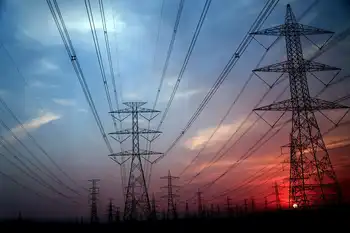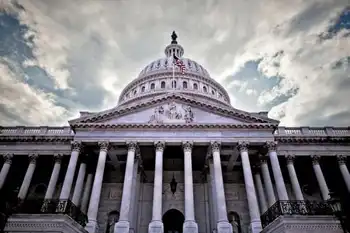FTC: Consumer Benefits Of Retail Power Competition Lagging
- The expected consumer benefits of retail electricity competition have yet to emerge because none of the states with retail choice programs have fully completed the transition from regulation to competition, the U.S. Federal Trade Commission staff concluded in a report issued Wednesday.
"Given that states are in a transition phase that represents a hybrid of regulation and competition, many of the expected benefits of competition have not yet emerged," the report said.
"Nothing that has happened so far, however, indicates that competition - once the transition period is completed - will not produce additional benefits to electricity customers," the staff report said.
The report was prepared at the request of Rep. Billy Tauzin, R-La., chairman of the House Energy and Commerce Committee, and Rep. Joe Barton, R-Texas, who chairs the committee's panel on energy and air quality.
The House lawmakers sought the FTC's review of state retail power competition programs in January as part of an effort to assess how to proceed with electricity reform legislation in the wake of California's electricity crisis.
"The commission study should examine any jurisdictional limitations on the states' authority to design successful retail competition plans and whether there is a need for federal legislative or regulatory action," they said in their letter requesting the report. "We want to work closely with the FTC and other federal agencies to ensure that consumers receive the full benefits of a competitive energy industry," the letter concluded.
By recommending uniform market rules, interconnection standards and regional power-grid management, the FTC staff report provided a strong endorsement of wholesale power market initiatives under way at the U.S. Federal Energy Regulatory Commission.
"For all of the expected benefits of retail competition to be realized, it is imperative that wholesale markets be competitive," the report said. "Effective wholesale and retail competition will mutually reinforce each other, thus combining to bring benefits to retail customers."
The report called for consistent pricing for transmission services, whether they are provided in support of wholesale or retail power sales. The FTC also recommended that incumbent utility service providers not have preferential access to transmission services in states with retail competition.
The report called for regional power grid authorities regulated by FERC to have eminent domain authority to site transmission lines. If not, then FERC should have such authority on a stand-alone basis, the FTC said.
States should eliminate policies that authorize new generation facilities based on in-state demand needs, the report said.
The staff report called for policies to ensure that retail and wholesale markets encourage effective demand-side responses to price signals.
"Generally, retail customers do not have price information and time-sensitive rates that reflect the changing price of obtaining electricity at various times of the day and over the course of the year," the FTC said.
Price responsiveness will lower prices and increase reliability by reducing demand for electricity. Consumers can make better decisions and efficiently contribute to market equilibrium, the report said.
It also will help contain wholesale price spikes if consumers reduce demand.
"States may wish to evaluate whether policies that govern generation reserves in electricity markets may inadvertently be hampering competitive retail and wholesale markets," the report said.
The report called for policies that promote real-time electricity meters and competition in providing metering services as a means of allowing variable time-of-day pricing for power.
States should design retail power programs to assure that the price of standard-offer service doesn't discourage market entry by competitive providers, the report said.
It recommended adoption of pilot programs to explore alternatives to standard-offer service "in light of the difficulties in establishing an appropriate standard-offer price."
The report also make extensive consumer-protection recommendations, such as truth-in-advertising requirements and standardized labeling of electricity products and services.
Related News

"Knowledge Gap" Is Contributing To On-the-job Electrical Injuries
VANCOUVER - A BC Hydro report finds serious electrical contact incidents are more common among trades workers, and research shows this is partly due to a knowledge gap.
Trade workers were involved in more than 60 per cent of electric contact incidents that led to serious injuries over the last three years, according to BC Hydro.
One-in-five trade workers have also either made contact or had a close call with electric equipment.
“New research finds many have had a close call with electricity on the job or have witnessed unsafe work near overhead lines or electrical equipment,” BC Hydro staff…




